Andris Nelsons was out of action early this month (he’s back now).
But Jiří Bĕlohlávek who was meant to conduct the Boston Symphony four times next week has come down with an unspecified illness ahead of his 70th birthday bash in Prague next month.
Jiří is replaced in Boston by Seattle’s Ludovic Morlot.
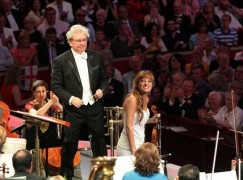
photo: (c) Chris Christodoulou/Lebrecht
press release:
Conductor Jiří Bĕlohlávek has regrettably been forced to withdraw from the BSO concerts in Boston on January 21, 22, and 23, due to medical reasons. Seattle Symphony Orchestra Music Director and former BSO Assistant Conductor Ludovic Morlot will replace Mr. Bĕlohlávek as conductor for the all-Czech program also featuring cellist Johannes Moser. The program remains the same.
Thursday, January 21, 10:35 a.m. (Open Rehearsal)
Thursday, January 21
Friday, January 22, 1:30 p.m.
Saturday, January 23
Ludovic Morlot, conductor
Johannes Moser, cello
SMETANA “The Moldau” from Má Vlast
MARTINŮ Fantaisies symphoniques (Symphony No. 6)
DVOŘÁK Cello Concerto
Not in London, unfortunately.
In San Diego.
At $25 million, it will cost approximately one-40th of the price of Simon Rattle’s half-billion pound dream.

Read here.
We’ve just received this clip of Gustavo Dudamel sharing the baton with his alter ego in ‘Mozart and the Jungle’.

What we like best is the actress who plays Deborah Borda, prez of the LA Phil.
The outgoing chief conductor of the Berlin Phil has joined the board of the Bundesjugendorchester, signalling his intent to remain embedded in German musical life. He has conducted the BJO since 2008.
‘This ensemble is too important to risk losing it,’ said Rattle, according to a press release.
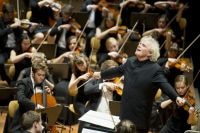
With a PhD from Peabody, Chuck Ellis conducted the Baltimore Symphony, as well as Syracuse, Columbus, Florida, Charlotte and Savannah orchestras.
He was music director of the Prince George’s Philharmonic Orchestra.
Appreciation here.
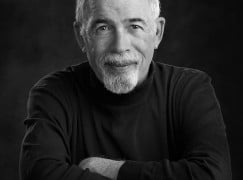
Alun Jones is to become head of Chetham’s School of Music from September, it was officially announced today.
He has been the Head of St. Gabriel’s School, Newbury, since 2001 and was President of the Girls’ Schools Association.

A former Choral Scholar, freelance singer and ad-hoc member of BBC Singers, Mr Jones began his teaching career at The Cathedral School, Llandaff; The United College of the Atlantic; St Donat’s Castle and the Welsh College of Music & Drama – says the press release.
(One Mum tells Slipped Disc: At least this one’s a musician.)
Chetham’s is a school dogged by past scandals that its board of governors has failed to lay to rest. We were first to report Mr Jones’s appointment, a month ago.
Former New York City Opera board member Roy Niederhoffer has won his court battle to be allowed to revive the enterprise after paying its creditors just under $1 million to buy their consent. City Opera (est. 1943) went belly-up in October 2013 after a prolonged comedy of woeful mismanagement.
Niederhoffer, a hedge-fund manager, aims to reopen with a Tosca at Lincoln Center in January.
You can see the way his mind ticks: first pack ’em in with a proven hit, then rebuild a People’s Opera.
But Tosca? One of the five most performed operas of all time.
Why should people support the return of City Opera when all it’s performing is the same as everyone else?
Where’s the new audience? Where’s the loyalty tug? What’s the USP?
These are serious questions. Mr Niederhoffer is invited to answer them here.
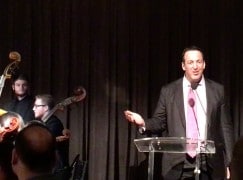
John Martin has entered a not guilty plea at Manchester Crown Court to the charge of murdering the concert pianist Natalia Strelchenko, 38, in the early hours of August 30 last year.
Martin, 48, a double-bass player, had been living with Miss Strelchenko in Newton Heath, Manchester, and acting as her agent. He appeared in court under his real name, Jon Skogsbakken, a Norwegian national.
He was remanded in custody until the trial begins on February 23.
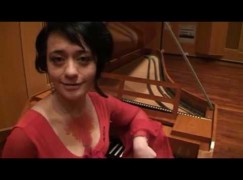
London’s Wigmore Hall has announced its first live-streamed concert.
It takes place on Thursday 28 January 2016, together with the hall’s 2016/17 Season Launch, followed by performances from Berlin’s Armida Quartet, soprano Anna Lucia Richter with pianist Michael Gees, and baritone Andrè Schuen with pianist Daniel Heide.


Tauba Auerbach, 34, is a dedicated abstract artist. Her curtain will go up at the start of next season.
A lovely memory of Pierre Boulez by Mary Miller, general and artistic director of Bergen National Opera:
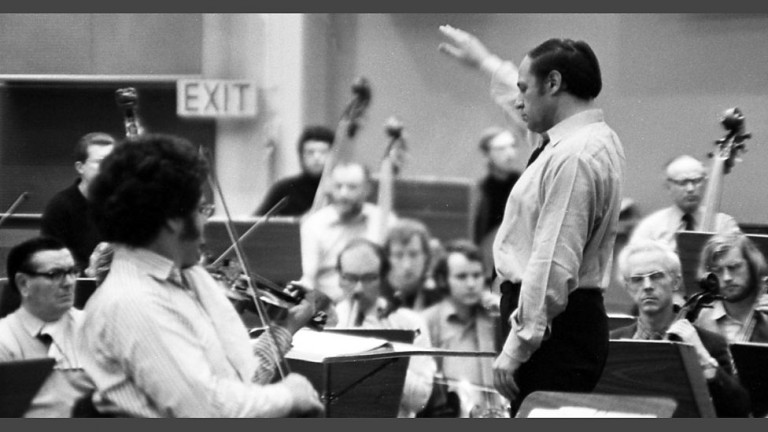
Many years ago, a somewhat posturing editorial appeared in one of the London papers – `Do we really need Pierre Boulez?´ it asked. The response, one imagines, was supposed to reflect England´s early 90s deep-felt and somewhat fashionable wincing in the face of intellectuals, especially those with the gall to talk unflinchingly about elitism and quality. These were the days when cultural political correctness had begun to infest our language with terminology bland as blancmange, and Arts Councils were suggesting that words like talent or gifted were indelicate, nay, dangerous. Boulez, the writer perhaps intended us to cry, was a past sell-by date pedlar of nit-picking musical efficiency with no relevance to 21st century new-age cool or to our retro-reinvented love of goopy instantly emotional tonalism. He wasn´t fun or fast, and worst of all, he was French.
Having the privilege of a Scottish newspaper byline at the time, I responded with red-faced fury. Boulez, I argued, was beyond a game-changer, a musician who had emphatically and indelibly shifted the way we perceive art, a person beyond being merely an influence: an absolute icon of quality and precision and musical excellence whose intellegence, wisdom and passion set down a critical marker in the evolution of European culture.
As a very young violinist in his London orchestra, the BBC Symphony, I had coincided with the final years of his parallel leadership of the New York Philharmonic. I was terrified. He would rehearse Ravel and Debussy desk by desk, hands twitching metronomically, eyes flinty. My desk partner, a very elderly Scot of supreme elegance who had played chamber music in his youth with Heifitz, would whisper ’try a third finger on that top F’ as my damp fingers skidded and skittered. Later, Boulez would summon the whole orchestra and the miracle emerged – long evocative lines which floated and swerved over the immaculate rhythmic scaffolding which his fastidious preparation had created. He made us understand, absolutely, that music is devoid of fluidity – cannot build tension and then let go, cannot sweep and fly – without the discipline of structure.
He had, in the orchestra, huge fans but also grumpy detractors – a noisy ongoing war snarled with the principal trumpet, but he and the eccentric flamboyant Polish principal trombone adored each other – ’Ah Pierre’ Alfred used to splutter tearfully ’true Europe gentleman’. The horn section at the time was spectacular but irracible, tending to erupt at inappropriate times into arrangements of Souza marches if days of Globokar, Maderna or Boulez´s own Explosante Fixe dragged into weeks. Boulez, less than fresh off an overnight flight from New York and a fierce programme of Ligeti would roll his eyes and mutter ’Please, I am in my ninth hour’.
The BBC percussion section was notorious – brilliant as benefitted an orchestra so edgy in its embracing of new work – and full of frightening wit. Rehearsing Bartok, Boulez asked for ’pozzibly…. maybe … a little more magic’ from the timpani at bar 76. We began again. At 76 the drumroll started. ‘Abraca-f***ing-tastic!’ shouted the player.
The tuba player, doomed by history to spend long swathes of time with little to play, was usually immersed in Salinger short stories. At an important concert, he emerged from Franny and Zoe, panicked and came in loudly. And wrong. Abject with apology, he knocked on the conductor´s door at the interval. Boulez appeared clutching a box of Fauchon truffles. ’Never mind’ he said ’have a chocolate…’
Years later I interviewed him before an Edinburgh Festival visit with his Ensemble Intercontemporain. He talked about rhythms in Scottish folk music and mused about scoring in Stravinsky. I asked him why he no longer rigorously conducted the solo bassoon at the opening of Rite of Spring – was it that basson playing was better, or that he had truly relaxed? He giggled and said ’both’.
At his 75th birthday concert he was interviewed on stage, talking with his customary Gallic-inflected fluency. It was hard to reconcile this serene, superb mind with the stormy young dementor of establishments so often described from his 40s – though he smiled about those years without apology. He was asked why he never conducted overtly political music, given his polemnic views – Shostakovich, for example. He replied ’because Shostakovich is a second-rate composer’. The audience squirmed. ’Don´t mistake me’ he said. ’He is an excellent composer, but the evolution of music would not have been altered had he not lived. If we had not experienced Berg and Schoenberg, then our world would be different’.
Only time will tell how badly we have needed Boulez, both his fevered and rebellious youth and his profoundly wise maturity. Maestro, composer, iconoclast, thinker, futurist, friend. Thank you for it all.
(c) Mary Miller/Slipped Disc
The Melbourne Symphony Orchestra has, ‘after an extensive global search’, hired its next managing director from… the Queensland Symphony Orchestra.
Sophie Galaise made a big splash in Brisbane three months ago when she appointed Alondra de la Parra as music director, a title never previously granted by an Aussie orch.
Now Sophie’s swanning off south, leaving Alo to fend for herself in the fearsome Queensland tropics.
Melbourne has also renewed Sir Andrew Davis’s contract as music director.

press release:
The Melbourne Symphony Orchestra today announced Sophie Galaise as its new Managing Director after an extensive global search.
Currently the Chief Executive Officer for the Queensland Symphony Orchestra (QSO) and prior to this the Executive Director of the Quebec Symphony Orchestra (OSQ), Canadian-born Sophie is renowned for her experience working with orchestras, not only on a corporate level but also as a professional musician and musicologist.
MSO Chairman Michael Ullmer said Sophie was the perfect choice to take over the reins of the Melbourne Symphony Orchestra as the company begins its 2016 season.
“We are delighted to welcome Sophie to the Melbourne Symphony Orchestra after an international search for the right candidate to lead the organisation. Sophie brings to the MSO a high level of experience and knowledge working with national and international orchestras as well as passion and enthusiasm for the Australian classical music scene.
“With the reappointment of Sir Andrew Davis as Chief Conductor and a number of key orchestral appointments, the MSO has never been stronger artistically. We are seeing this translate to great concerts and full houses. Sophie is the right person to build on this momentum,” said Mr Ullmer.
Ms Galaise will relocate from Brisbane to Melbourne, commencing in the role in April, and will work closely with the MSO’s Interim Managing Director Richard Evans on a transition.
“I will very much miss QSO, it is a wonderful orchestra and community. The last few years have been among the most fulfilling of my professional life. I am very proud of what the QSO has accomplished. I have no doubt that the orchestra will thrive in the years to come under the artistic direction of Alondra de la Parra. Brisbane is a very special place and being a part of this unique cultural environment has been a privilege and a pleasure I will always treasure it.”
“I am thrilled to be joining the Melbourne Symphony Orchestra at such an exciting time in the life of this renowned orchestra. I look forward to working in collaboration with Sir Andrew Davis, the musicians, staff and board to bring this great orchestra to a new level. In the years ahead, together with the audience and stakeholders, we will be crafting a new and exciting chapter for the MSO,” said Ms Galaise.
Sophie Galaise was born in Montreal in the province of Quebec, Canada. Sophie pursued a professional career as a flutist, spending time in Bremen, Germany playing with a German Orchestra and some ensembles. After Germany, as a musicologist, she worked in Basel, Switzerland at the Paul Sacher Foundation then went on to Paris working with Pierre Boulez. She was Coordinator of Music from 1997-2003 at Quebec Arts Council.
Following this success and the completion of her PhD in Musicology, in 2003 Sophie was appointed the Executive and Artistic Director of the Orford Arts Centre in Orford, Canada.
In 2007 Sophie Galaise was appointed Executive Director of Quebec Symphony Orchestra (OSQ). The OSQ is the dean of Canadian symphony orchestras and under her leadership became one of the top five orchestras in the country.
Sophie left the OSQ in 2012 after five years with the Orchestra and in 2013 she became the Chief Executive Officer of the Queensland Symphony Orchestra and since then has substantially lifted the orchestra’s revenue and grown its reach to more than 1.1 million people.












